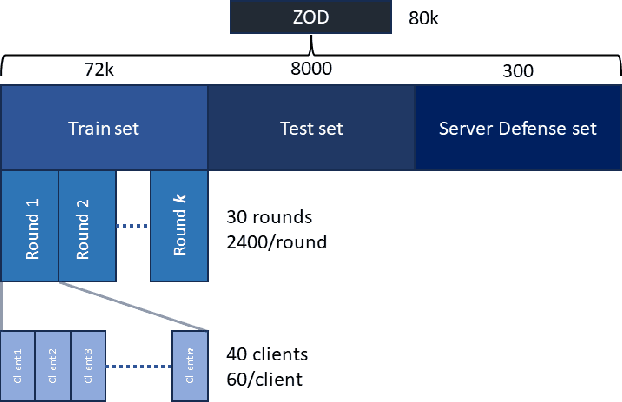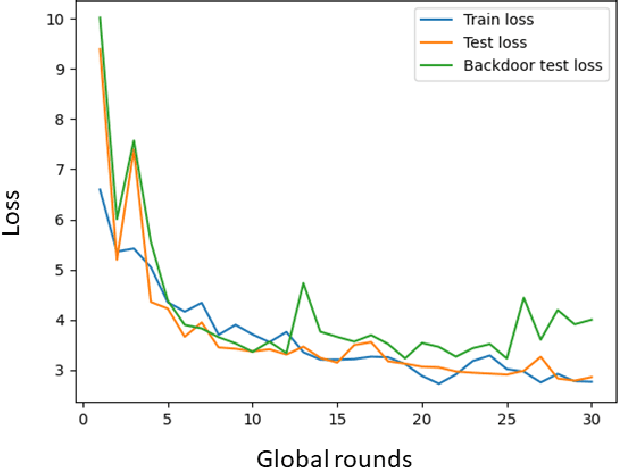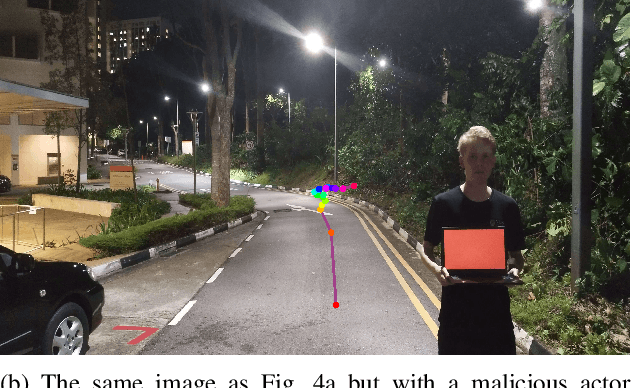Sonakshi Garg
Poisoning Attacks on Federated Learning for Autonomous Driving
May 02, 2024



Abstract:Federated Learning (FL) is a decentralized learning paradigm, enabling parties to collaboratively train models while keeping their data confidential. Within autonomous driving, it brings the potential of reducing data storage costs, reducing bandwidth requirements, and to accelerate the learning. FL is, however, susceptible to poisoning attacks. In this paper, we introduce two novel poisoning attacks on FL tailored to regression tasks within autonomous driving: FLStealth and Off-Track Attack (OTA). FLStealth, an untargeted attack, aims at providing model updates that deteriorate the global model performance while appearing benign. OTA, on the other hand, is a targeted attack with the objective to change the global model's behavior when exposed to a certain trigger. We demonstrate the effectiveness of our attacks by conducting comprehensive experiments pertaining to the task of vehicle trajectory prediction. In particular, we show that, among five different untargeted attacks, FLStealth is the most successful at bypassing the considered defenses employed by the server. For OTA, we demonstrate the inability of common defense strategies to mitigate the attack, highlighting the critical need for new defensive mechanisms against targeted attacks within FL for autonomous driving.
Fair Differentially Private Federated Learning Framework
May 23, 2023Abstract:Federated learning (FL) is a distributed machine learning strategy that enables participants to collaborate and train a shared model without sharing their individual datasets. Privacy and fairness are crucial considerations in FL. While FL promotes privacy by minimizing the amount of user data stored on central servers, it still poses privacy risks that need to be addressed. Industry standards such as differential privacy, secure multi-party computation, homomorphic encryption, and secure aggregation protocols are followed to ensure privacy in FL. Fairness is also a critical issue in FL, as models can inherit biases present in local datasets, leading to unfair predictions. Balancing privacy and fairness in FL is a challenge, as privacy requires protecting user data while fairness requires representative training data. This paper presents a "Fair Differentially Private Federated Learning Framework" that addresses the challenges of generating a fair global model without validation data and creating a globally private differential model. The framework employs clipping techniques for biased model updates and Gaussian mechanisms for differential privacy. The paper also reviews related works on privacy and fairness in FL, highlighting recent advancements and approaches to mitigate bias and ensure privacy. Achieving privacy and fairness in FL requires careful consideration of specific contexts and requirements, taking into account the latest developments in industry standards and techniques.
 Add to Chrome
Add to Chrome Add to Firefox
Add to Firefox Add to Edge
Add to Edge